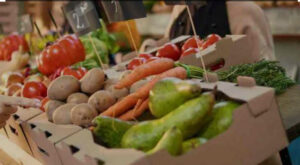As the holy month of Ramadan begins, Nigerian markets experience a familiar but pressing challenge  soaring food prices. The heightened demand for staple foods such as rice, sugar, flour, maize, and millet leads to price spikes, stretching household budgets, especially for low-income families.
soaring food prices. The heightened demand for staple foods such as rice, sugar, flour, maize, and millet leads to price spikes, stretching household budgets, especially for low-income families.
Food price inflation in Nigeria has long been a concern, with Ramadan amplifying existing market pressures. The surge in demand stems from increased family gatherings, communal meals, and charity-driven food distribution, pushing both wholesale and retail prices upward. However, demand is not the sole culprit. Supply chain disruptions, seasonal shortages, and speculative pricing by traders further exacerbate the situation. Many informal market vendors, seeing an opportunity, raise prices in response to the buying frenzy.
Economic analysts have weighed in on the trend. Professor Uche Uwaleke, a financial expert, explains that the Ramadan-induced price hikes are not unique to Nigeria but are worsened by the country’s ongoing inflation crisis and currency fluctuations. He notes that, while governments in other countries introduce subsidies during festive seasons, Nigeria’s interventions—such as market monitoring and import adjustments often fall short in curbing inflationary pressures.
The Central Bank of Nigeria (CBN) and National Bureau of Statistics (NBS) continue to track food inflation rates, with recent reports indicating that the prices of consumables especially fruits, vegetables, and grains have risen by 20-30% in key urban centers. In some areas, logistics challenges and fuel costs add further strain on food distribution.
On social media, many Nigerians express frustration over the price surge.“Ramadan should be a time of generosity, but all we see are traders hiking prices.” Says a twitter user.
Despite the economic strain, Ramadan remains a period of resilience, faith, and communal support. Many well-meaning individuals and organizations step in to provide food relief, ensuring that struggling families are not left behind. Yet, the broader question remains: Will Nigeria’s economic policies ever evolve to manage seasonal price fluctuations more effectively, or will food inflation continue to define festive periods?









